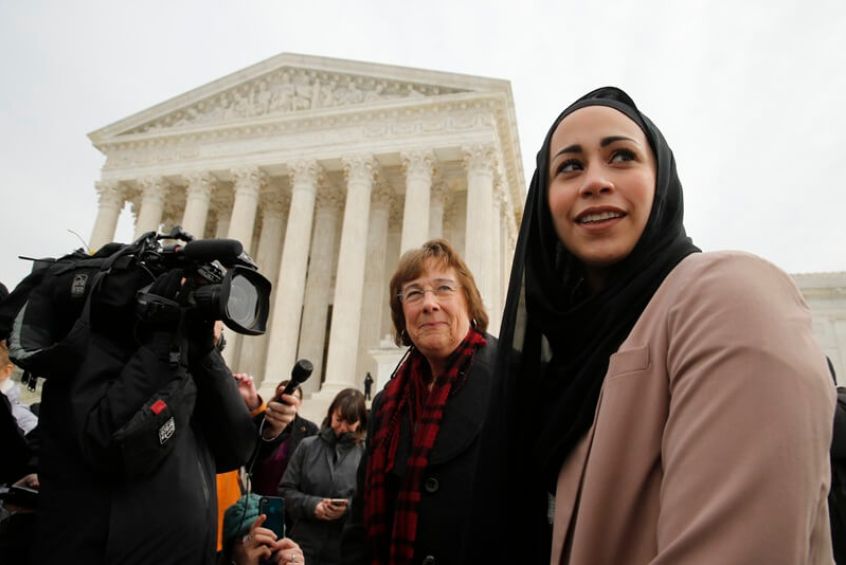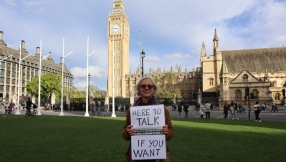
The US Supreme Court asserted the right to religious practice when it ruled on Monday that a clothing store wrongly discriminated against a job applicant whose Islamic beliefs required her to don a hijab.
"At a time when some are suggesting that religious faith and values should be confined to private prayer or houses of worship, today's ruling is a welcome reminder that the free exercise of religion takes place every day, not just on holy days, and in all aspects of life, including work," University of Notre Dame Law School professor Richard Garnett said.
The plaintiff, Samantha Elauf, applied for a job with a store of clothing firm Abercrombie & Fitch in Oklahoma, the Catholic News Agency reported on Wednesday. Elauf wears a hijab to comply with a religious requirement, and she wore one during her job interview with the store.
Because she wore her religious headdress, Elauf was denied the job at the store, which implements a no-headwear policy for its employees for fashion reasons.
She never told the company that she wears a hijab for religious purposes and did not ask for accommodation during the interview. In internal conversations, however, the store manager and district manager assumed she wore the headdress for her religion.
She then filed a case, alleging that the company discriminated against her for religious reasons.
On Monday, the Supreme Court voted 8-1 backing Elauf's claims.
The court's majority opinion, penned by Justice Antonin Scalia, read: "An employer may not make an applicant's religious practice, confirmed or otherwise, a factor in employment decisions."
The majority opinion cited Title VII of the Civil Rights Act, which bans discrimination by employers on basis of religion. The justices ruled that the law does not only apply when an employer knows about a prospective employee's need for a religious accommodation but also when their hiring decision is motivated in any way by the said need. If the employer wants to avoid making an adjustment, and this is a motivating factor in his employment decision, then the employer would violate the law.
"To prevail in a disparate-treatment claim, an applicant need show only that his need for an accommodation was a motivating factor in the employer's decision, not that the employer had knowledge of his need," read the opinion.
Religious beliefs are not treated as neutral by civil rights protections, but are rather given prioritized status deserving a "favoured treatment," said the court decision.
This aspect of the ruling means further protections for religious practice against workplace requirements that might run in conflict with it.
"Most of us, after all, spend much more time at work than we do in religious services, and the freedom of religion includes the freedom to integrate our faith into our daily lives," said Garnett, who specializes in freedom of religion and constitutional law.
The case has broad implications to all faiths, For one, it could be applied to cases of Jewish or Christian job applicants who cannot work on Saturdays or Sundays for religious reasons but want to apply to companies requiring work hours on those days.
The Council on American-Islamic Relations hailed the Supreme Court's decision as "historic," especially in these times "when the American Muslim community is facing increased levels of Islamophobia."
"The Supreme Court rightly underscored that a job applicant's religious beliefs and practices must play no role in an employer's hiring decision," said lawyer William Burgess of the Council.
Leaders of other religious faiths also defended Elauf, including Rev Robert Schenck of Faith and Action in the Nation's Capitol, who argued after February's oral arguments: "There is no constitutional right to fashion preferences. There is a Constitutional right to religious practice."









